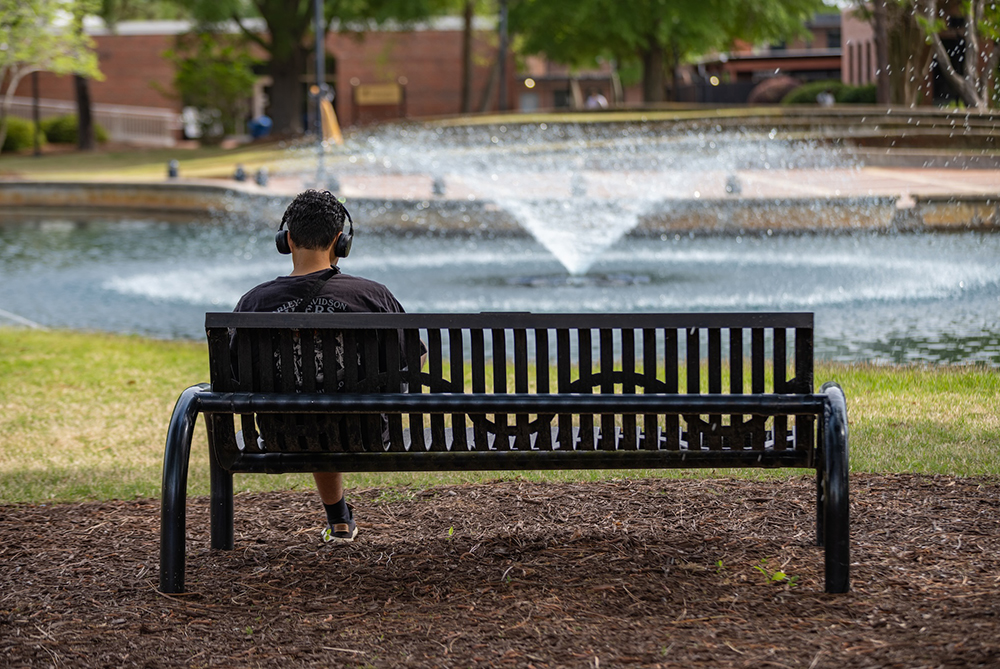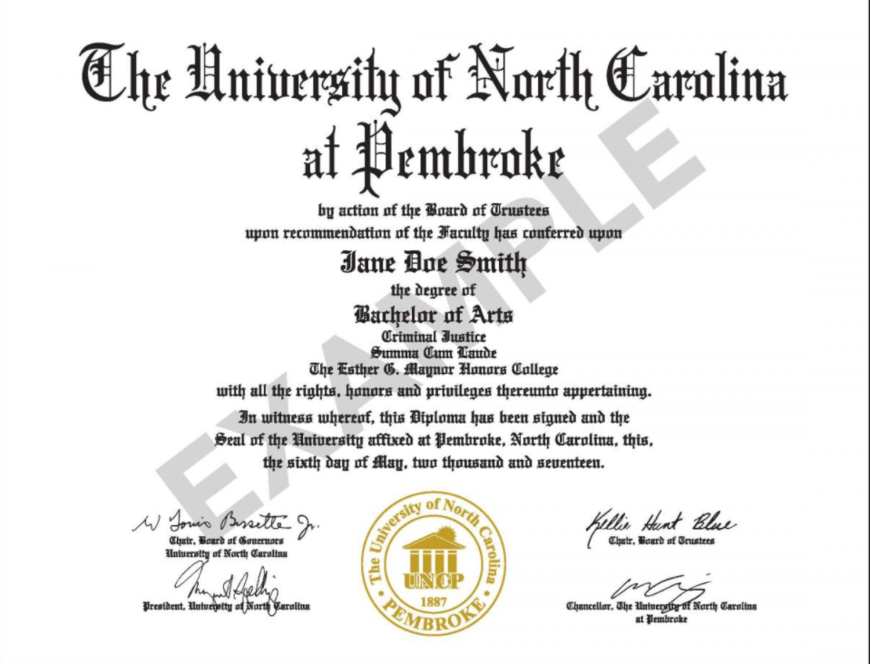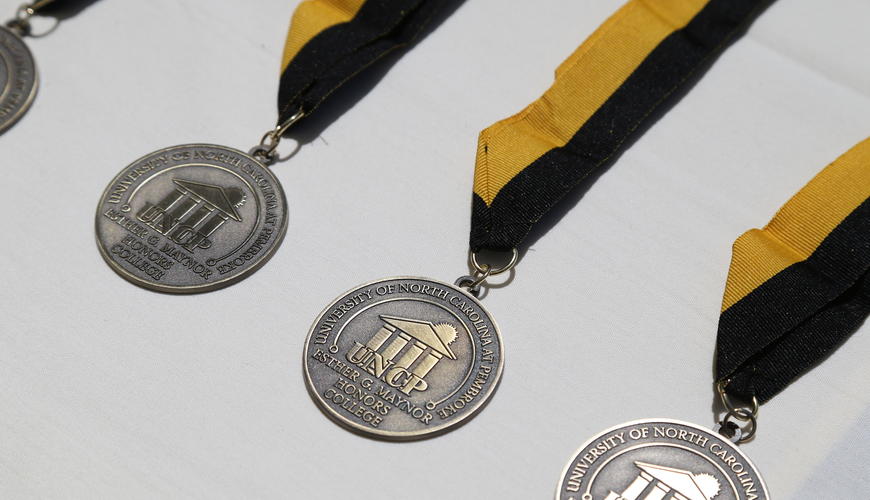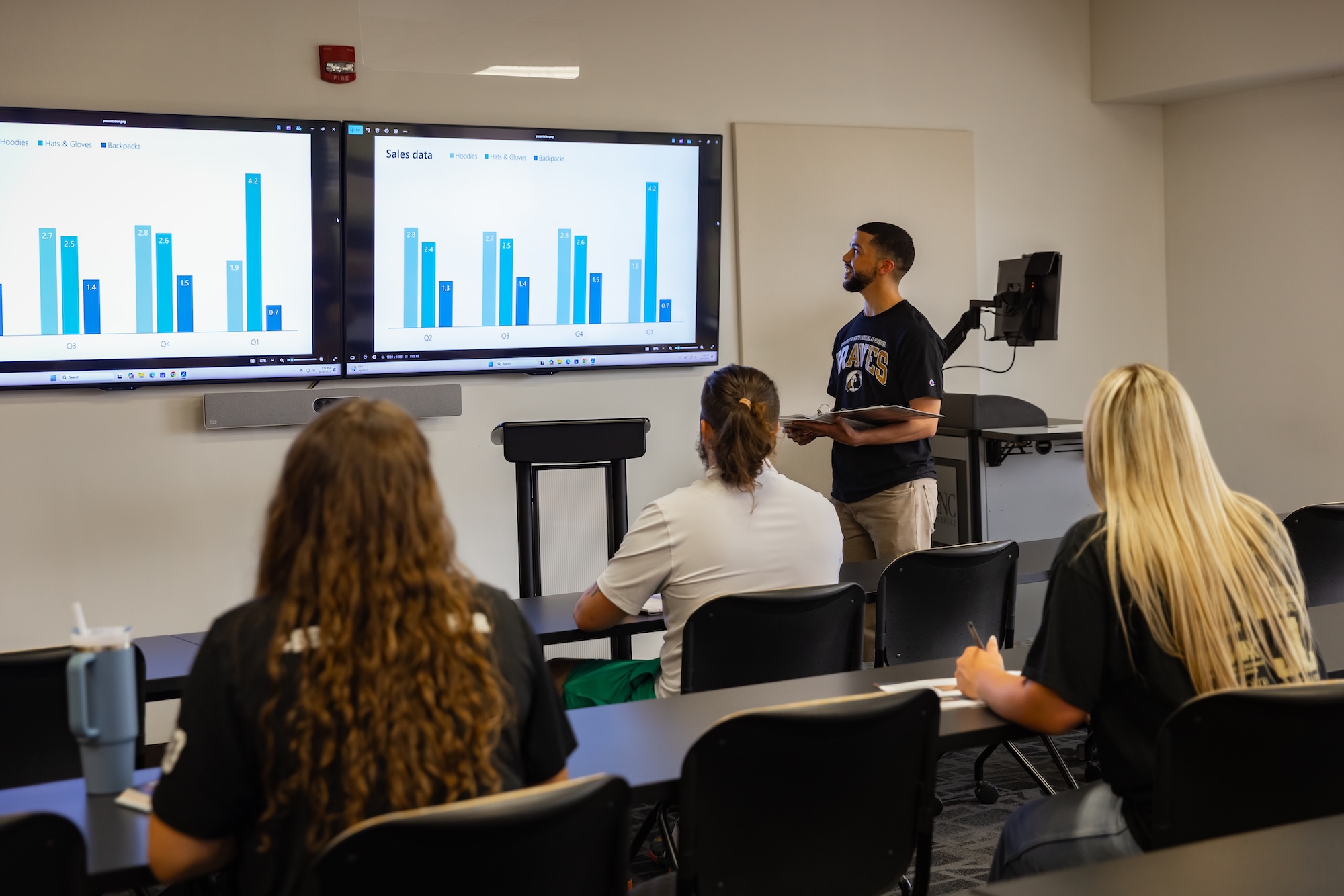Curriculum
Progress Toward Graduation
Our goal in the Honors College is to support students in their academic goals and to provide them with opportunities and resources to thrive. Students can expect yearly status reports in their progress toward Honors College graduation and may request an update at any time. Honors college graduates will successfully complete at least 22 hours of honors credit which:
-
May include a maximum of 12 hours of contract courses and undergraduate privilege courses combined.
-
Must include the capstone project: HON 4000 (one credit hour) and 4500 (three credit-hours).

Good Standing
Students are expected to successfully complete a minimum of one honors course every academic year until 18 hours of honors credit (I.e. all coursework except the capstone project) are completed. Requests for a waiver can be made to the Dean of the Honors College.
Students are expected to meet GPA benchmarks at the end of each year of membership in the Honors College as noted below.
- End of First Year: 3.0 Cumulative GPA
- End of Second Year: 3.25 Cumulative GPA
- End of Third Year and Above: 3.4 Cumulative GPA
- At Graduation: 3.4 Cumulative GPA

Progress Notice
Students who fall below the above GPA benchmarks or who do not complete any Honors College coursework at the end of any academic year will receive a Progress Notice. Students will continue to enjoy Honors College membership and all associated benefits and will receive support from the Honors College staff. An individual plan may be developed in order to meet the needs of each student and to support progress towards Honors College graduation. Students who meet both the GPA and curricular benchmarks at (or before) the end of the following academic year, or who meet the goals set in the individual plan, will retain Good Standing status and the Progress Notice will be removed.

Membership Suspension
Students who do not meet the GPA or curricular benchmarks for two consecutive academic years or who fail to meet the goals of their individual plan following a progress notice will no longer be active members of the Honors College. This will affect any future financial or academic benefits associated with the Honors College. However, academic standing in the University is not affected and Honors College coursework completed will continue to count towards their degree. Former members of the Honors College remain important to our community and are very much welcome at Honors College events and activities and to continue living in Honors College housing if desired.
Employers asked me about the honors curriculum requirements and the senior project, which really helped me stand out during interviews.
Honors College Contract Courses
Honors contract courses are traditional university courses that are tailored to meet honors requirements by requiring work that is above and beyond the normal expectations of the course. Contract courses require a proposal narrative to be developed, describing the honors component which will be added to the course. Submit a Proposal
Some examples are:
- Assignments that extend student learning beyond regular course expectations.
- Assignments/experiences that add complexity to existing coursework.
- Substantial faculty-student interaction outside the classroom.
- Additional research opportunities or projects under the professor's guidance.
- Involvement in co-curricular events such as conferences, lectures, performances, service-learning, job shadowing, or other activities.
- Once the syllabus is available, the student reviews the course content and brainstorms ways in which the course could be enhanced to pursue their academic, professional and/or personal goals and interests.
- Student discusses possibilities with faculty member.
- Student develops a written proposal narrative for the contract course in consultation
with the faculty member.
- The proposal narrative should be 200-300 words and should describe your plan for the contract course. Be as specific as possible. Explain what you will learn and how the work will enhance the learning goals of the course. Discuss how the work will benefit you academically, professionally and/or personally. Describe what a successfully completed project will look like.
- Student submits the proposal via this online form.
- Dean of the Honors College reviews the proposal and requests the approval of the faculty member (revisions may be requested).
- At the end of the term, the student must have completed the contract work to the satisfaction of the faculty member and earned a B or above in the course to receive honors credit.
How evaluation of the work within their course will be handled is up to the discretion of the individual instructor. Many faculty treat the contract course work as a non-graded, additional element of their course. The Honors College applies honors credit for the course if the instructor deems the work satisfactory and the student earns a B or better in the course.
Proposals must be submitted before the end of the fourth week of fall or spring semester-long courses, and before the end of the first week of summer term or 8-week courses.
Honors Capstone Project

Community and Civic Engagement Projects
These types of projects involve active (volunteer) participation and leadership in
a focused project involving service to the community, an organization, or a business.
The project should be appropriate to the student's field of study, and the student
will work with a faculty member to research the project and plan the experience. The
final written product may be an extended reflection paper, action plan or research
paper, depending on the project, and should include research as well as a description
of the project. Community and civic engagement projects may be combined with creative
or research work

Creative Projects


Research Projects
Research projects may focus on primary research (experimental, archival) or secondary research (review and analysis of published work) and should be completed under the direction of a faculty mentor. Research projects tend to involve a substantial written product and a formal presentation of the results. Research projects may be combined with creative or community and civic engagement work.
The capstone project unfolds over two semesters: first taking HON 4000 (one credit
hour) and concluding with HON 4500 (three credit hours). Over this span, students
plan and complete the project under the supervision of their faculty mentor and with
support from the Honors College capstone project coordinator. 
Honors College Distinction at Graduation
Students who complete the Honors College curriculum upon graduation receive Maynor
Honors College graduation medallions to be worn during Commencement exercises. Additionally,
Honors Graduates receive a specialized UNCP diploma which notes the successful completion
of Honors College requirements. Official academic transcripts similarly indicate Honors
College distinction.

